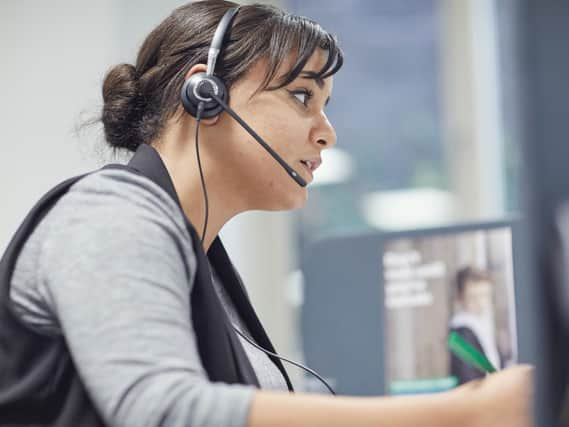Children are suffering disproportionately more mental health issues in Yorkshire as charities warn children are reaching 'crisis point'


Children's charities Barnardo’s, NSPCC and YMCA have all spoken out about how young people are not receiving the support they need, warning of the “severe repercussions” of children being taken out of their support networks during lockdown.
In Yorkshire, 18 per cent of children have a probable mental disorder, according to a survey by NHS England after the first lockdown, which is above the national average of 16 per cent and nearly double the lowest rate, which was 10 per cent of children in London.
Advertisement
Hide AdAdvertisement
Hide AdJanice Hawkes, Barnardo’s assistant director children’s services, said: “Barnardo’s have found that in Yorkshire, Covid-19, and the measures to contain it, have had a disproportionate impact on children and young people’s mental health and wellbeing - especially the most vulnerable and marginalised in society.
“Our research shows that children and young people do not feel listened to, and that too many children and young people are having to meet crisis point before they can access support. Children and young people across the country have told us that they wanted to be supported with their mental health and wellbeing at the earliest possible stage, before their needs escalate.”
The charity is working with the Department of Education on a project called See, Hear, Respond which aims to quickly identify and support children, young people and families who are struggling to cope with the impact of coronavirus.
During the first national lockdown, volunteer counsellors at Childline, run by the NSPCC delivered nearly 43,000 counselling sessions about mental and emotional health, with children increasingly reaching out for help with issues including loneliness and low self-esteem.
Advertisement
Hide AdAdvertisement
Hide AdAfter being cut off from important support networks, many children shared that they were feeling isolated, anxious and insecure, the charity said.
Since lockdown measures were first introduced in March, the monthly average number of Childline counselling sessions about eating and body image disorders increased by almost a third on the pre-lockdown average, while sessions about sexuality and gender identity increased by 16 per cent compared with the pre-lockdown average.
Earlier this month, Childline launched a new campaign called Nobody is Normal which aims to help children understand that lacking confidence, feeling not good enough or that you do not fit in is a shared experience.
Childline founder, Dame Esther Rantzen said: “The pandemic has cut children off from the reassurance many of them need. When young people are facing mental health issues such as anxiety or depression or are struggling with eating disorders or self-harm, they often hide it from their parents and families. A lockdown intensifies stress in all our lives, and the Childline team know from past experience that it has made many children feel especially isolated.”
Advertisement
Hide AdAdvertisement
Hide AdDenise Hatton, chief executive of YMCA England & Wales highlighted that rates of probable mental disorders were higher in Yorkshire than the national average and seemed to be growing.
She said: “What is apparent is the severe repercussions when young people are taken away from their support networks and friends, naturally leading to a detrimental effect on their mental health.
“Given this current lockdown and the threat of more local lockdowns on the horizon, this could be the final straw for many young people who are already under increased strain.
“Any additional lockdown measures put in place must take in to account the need to provide young people with positive activities. Leaving them isolated and alone has proven a flawed strategy, and it cannot be repeated if we want to protect our young people through and beyond the next phase of the Government’s COVID-19 response.”
Comment Guidelines
National World encourages reader discussion on our stories. User feedback, insights and back-and-forth exchanges add a rich layer of context to reporting. Please review our Community Guidelines before commenting.